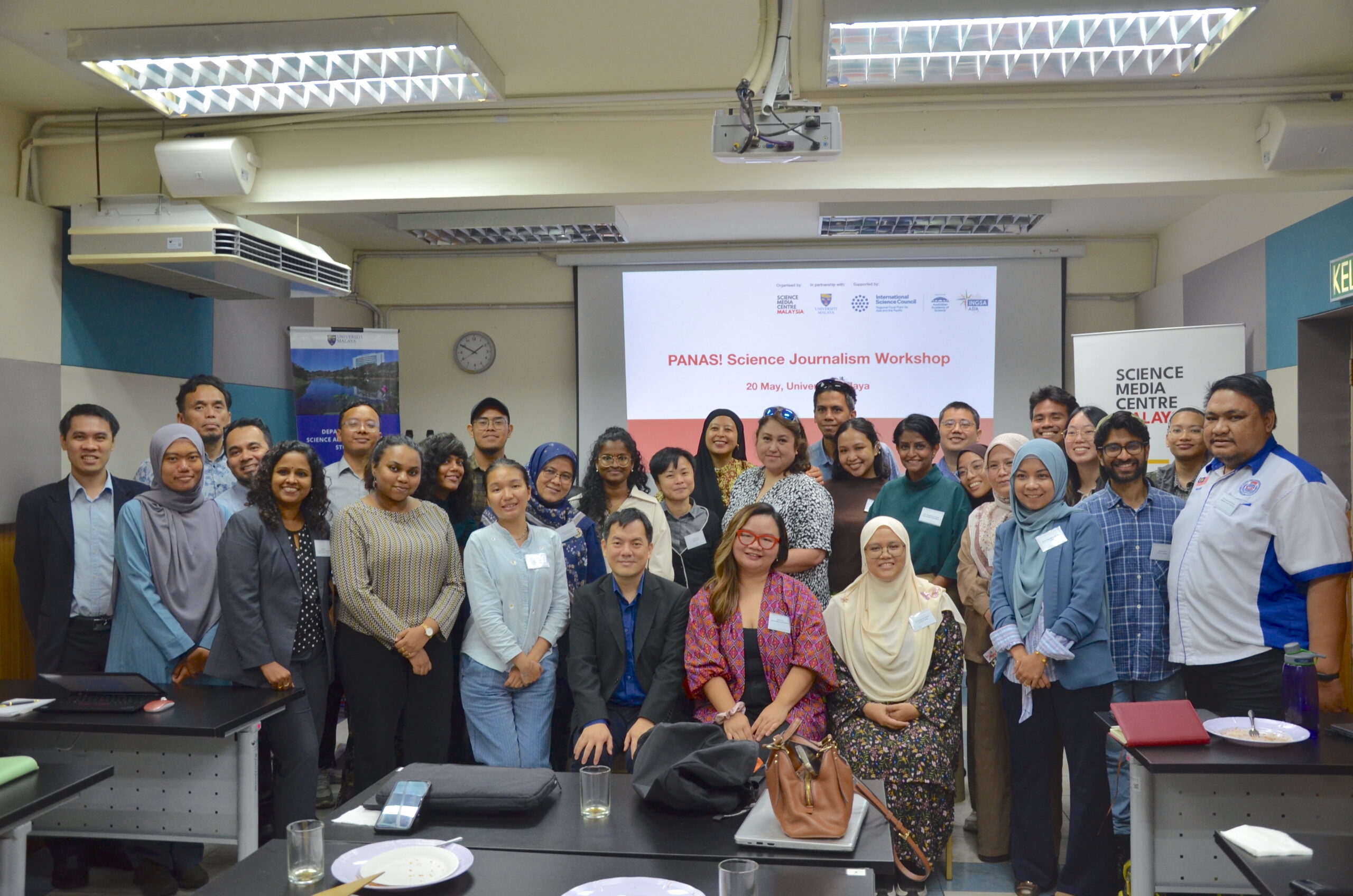Grassroots Workshop – PANAS! Science Journalism Workshop – Malaysia, 2025
In efforts to encourage collaboration between scientists, journalists, and policymakers, recipients of the Grassroots Science Advice Promotion Awards 2024, Ms Tan Su Lin and Dr Nurulaini Abu Shamsi, hosted a transdisciplinary workshop aimed at bridging the gaps between science communication and evidence-based policymaking, especially in the context of climate change. The event builds on the success of SMC’s PANAS! Climate Change Stories in Malaysia initiative, which supports evidence-based climate storytelling.
The PANAS! Science Journalism Workshop, held on 20 May 2025, was organised by the Science Media Centre (SMC) Malaysia in collaboration with the Department of Science and Technology Studies at Universiti Malaya. Supported by the International Science Council Regional Focal Point for Asia and the Pacific (ISC RFP-AP) and the International Network for Governmental Science Advice Asia (INGSA-Asia), the workshop was also mentored by Dr Anders Karlsson, a distinguished member of the INGSA-Asia Steering Committee. The event convened 30 participants from across sectors—including scientists, journalists, advocacy groups, and government officials—for a full day of dialogue, knowledge-sharing, and capacity-building. Among the attendees were Prof. Ts. Dr. Tan Wee Hoe, Chair of INGSA-Asia, and Aishwuriya Kunashankar, Regional Program Officer of INGSA-Asia.
The interactive one-day event featured presentations, breakout sessions, and networking activities designed to build understanding and bridge professional divides. Highlights included a introductory session on the Malaysian science advice ecosystem by Dr Nurulaini Abu Shamsi, senior lecturer at the Department of Science and Technology Studies, Universiti Malaya, a session by SMC’s co-founder and renowned science communicator, Dr. Mahaletchumy Arujanan, on effectively presenting scientific evidence to policymakers, and a fireside chat with Dr. Helena Varkkey, Associate Professor of Environmental Politics and Governance at the Department of International and Strategic Studies, Universiti Malaya, who shared personal insights on balancing research, media engagement, and policy influence.
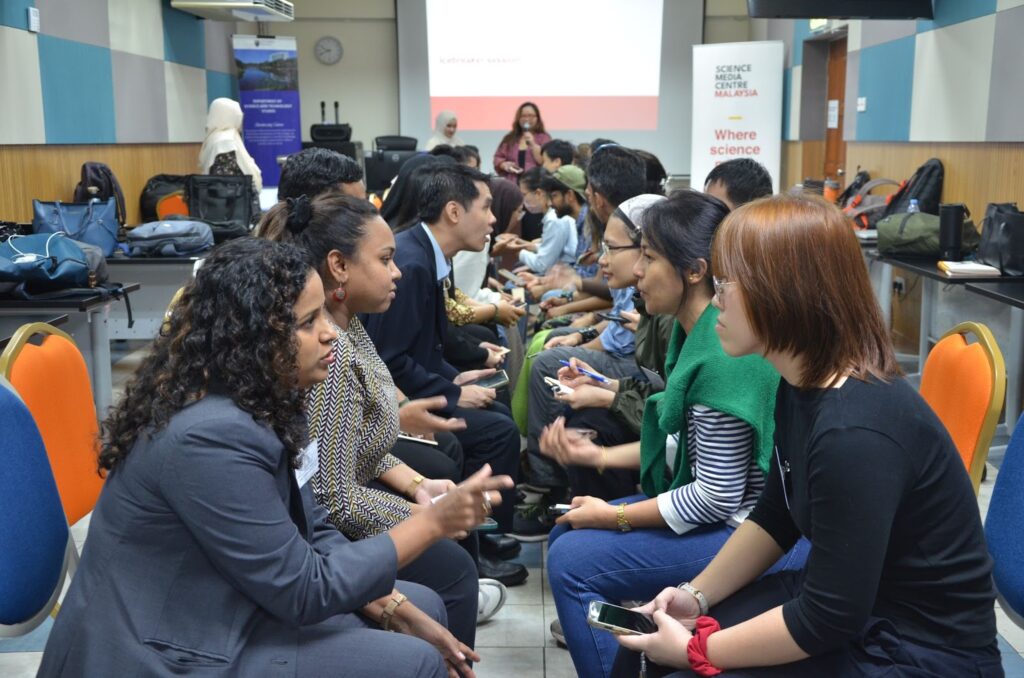
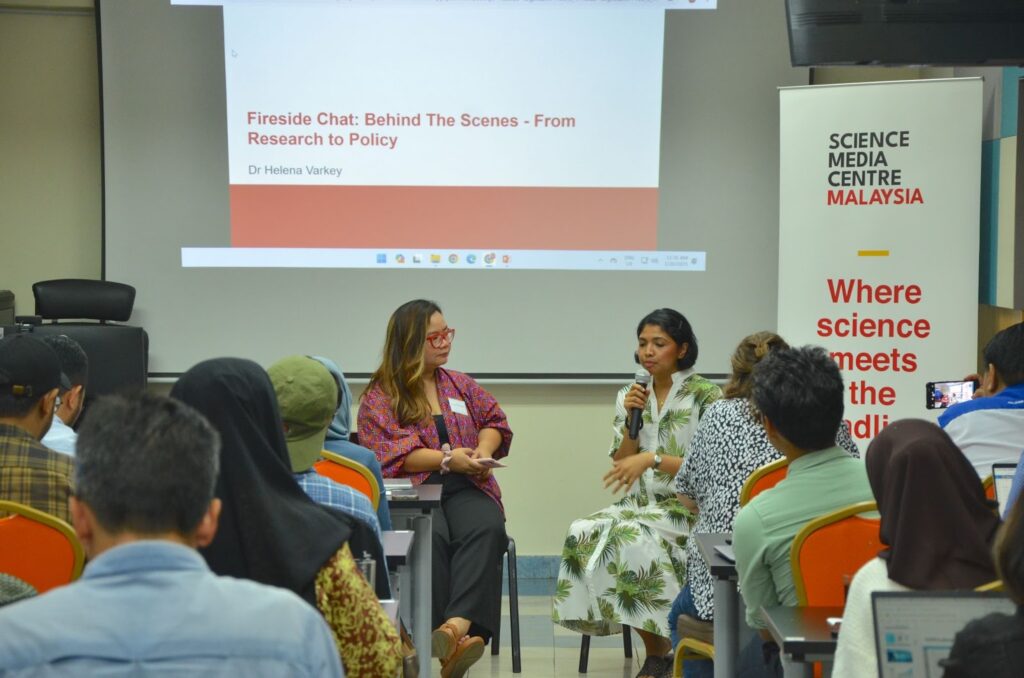
A case study presented by Seetha Bhai, Principal Assistant Secretary, Ministry of Energy Transition and Water Transformation examined how the local news framing on contentious issues such as the Lynas rare earths project can influence public perception and policy. Moving away from the “doom-and-gloom” narrative of climate reporting, Su Lin’s session on climate solutions journalism, encouraged both journalists and scientists to flip the narrative from problems to solutions approach in storytelling, empowering audiences to take informed climate action.
A separate panel discussion brought together three voices working at the science-policy-media interface: environmental journalist, Patrick Lee, Dr Azliyana Azhari (Monash Climate Change Communication Research Hub, Monash University Malaysia), and Tommy Cheo (WWF-Malaysia), who also serves on Malaysia’s Climate Adaptation Committee. They discussed the challenges and best practices in ensuring scientific evidence is translated effectively into public discourse and policy, emphasising the need for mutual trust, shared language, and consistent engagement.
In another interactive “How to Deal with You” session, scientists and journalists exchanged notes on their communication styles, expectations, and common misconceptions. This session offered a rare but valuable opportunity for both groups to reflect on their communication habits and learn from one another. Participants also heard from policymakers including from the Ministry of Natural Resources and the Environment and the Ministry of Energy Transition and Water Transformation through a feedback survey conducted by SMC Malaysia.
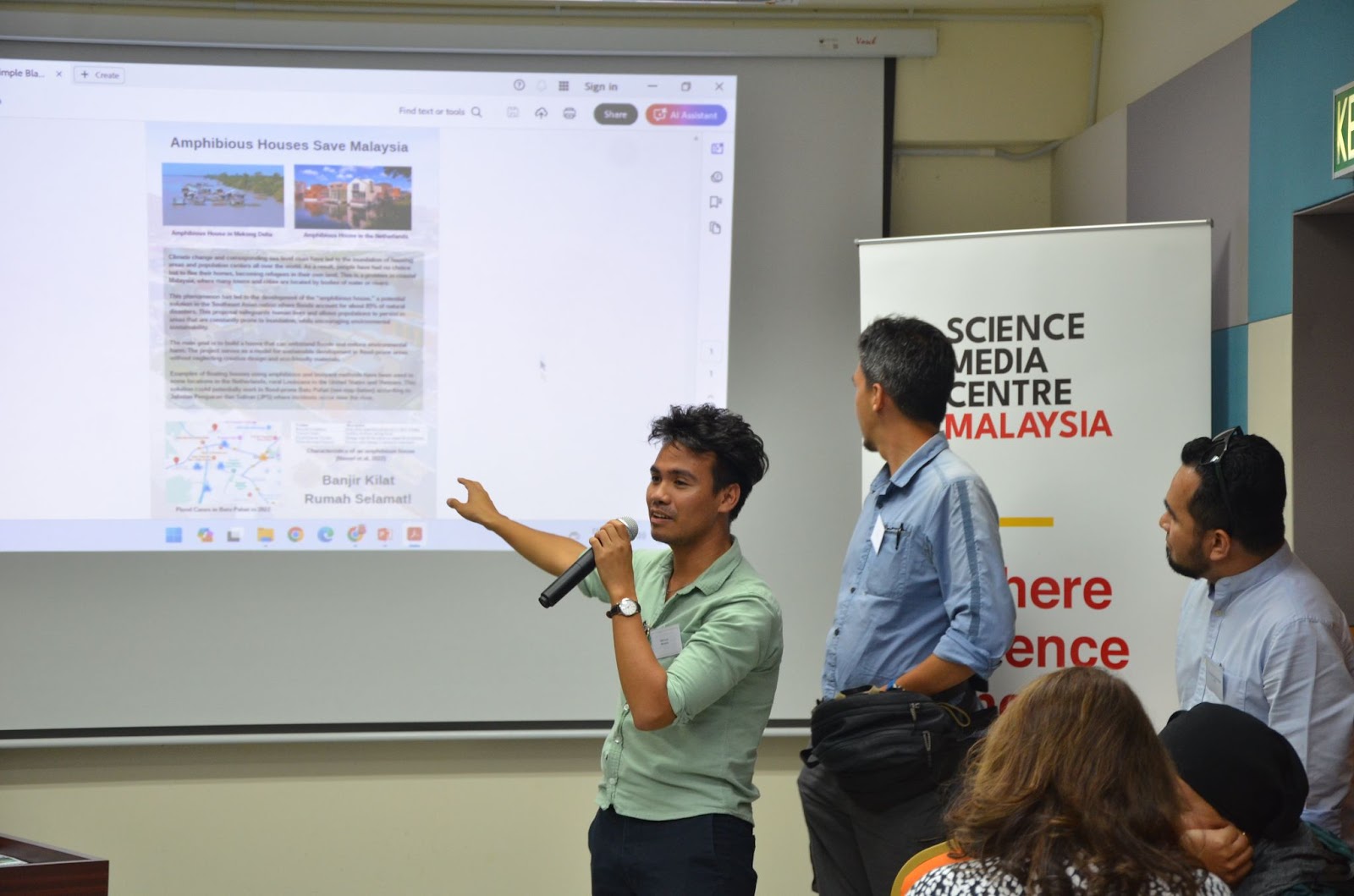
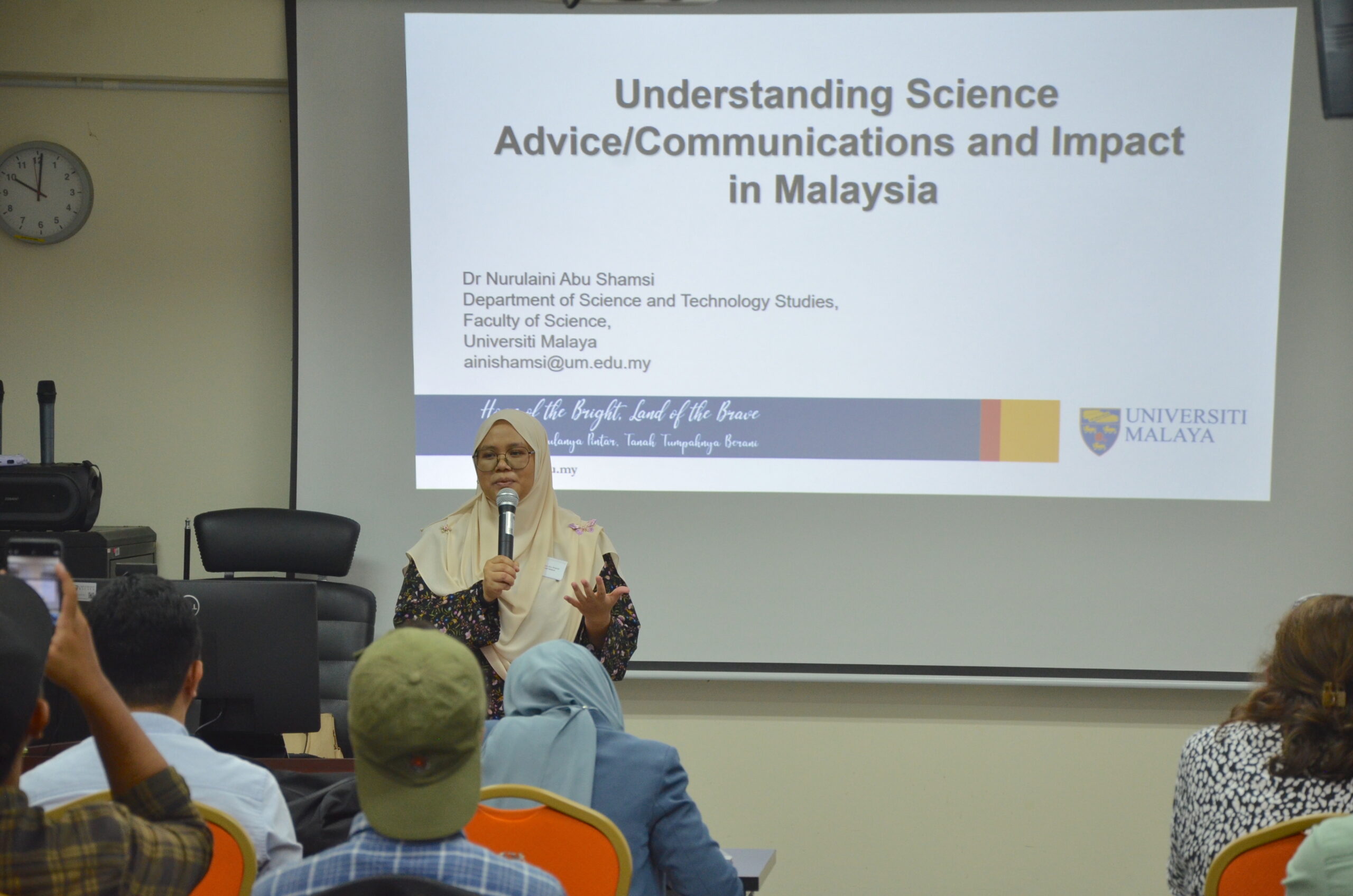
The workshop concluded with collaborative writing sessions among scientists and journalists to co-develop climate-related story ideas that centre both evidence and people. This session reinforced the message that building a more connected science communication ecosystem is essential for informed decision-making and a sustainable future.
The PANAS! Science Journalism Workshop demonstrated that fostering collaboration across disciplines is not only possible, it is essential. By creating a space where scientists, journalists, policymakers, and advocates can listen and learn from one another, the workshop laid the groundwork for a stronger, more connected science communication ecosystem in Malaysia.


